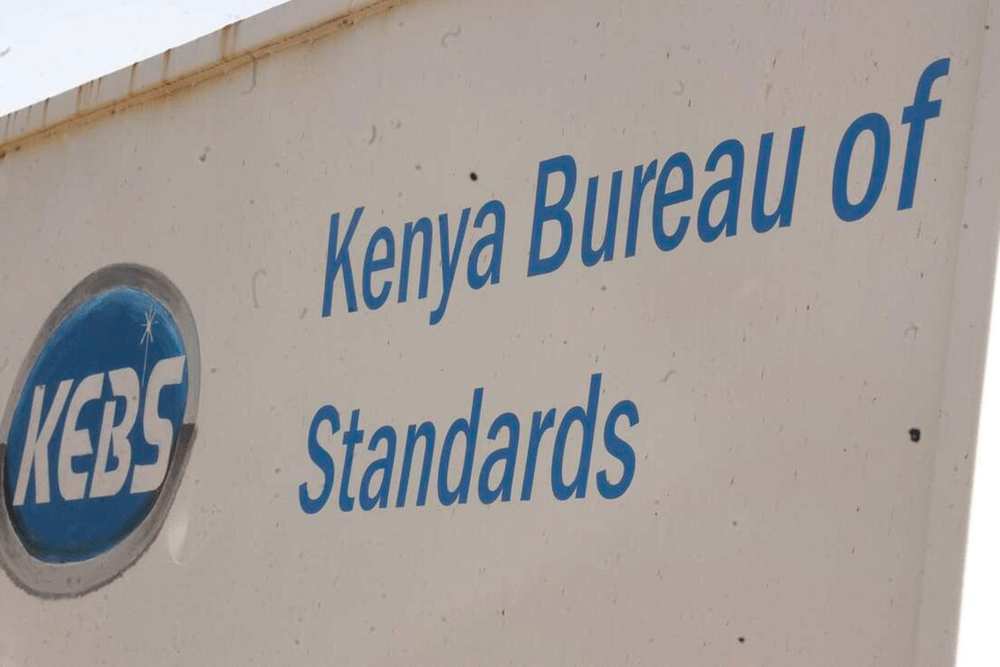Prime
Swiss firm Sicpa fails to block 'unfair exclusion' from bidding in Kenya

Sicpa argues that the Kenya Bureau of Standards introduced criteria that was fashioned to lock it out of the procurement process. File / NMG
What you need to know:
- The Kenyan Court of Appeal says that a procuring entity is permitted to customise its bid document to suit its needs
Swiss firm Sicpa SA, which also operates the digital tax stamps system in Uganda, has lost a second appeal in Kenya, in which it was challenging a clause introduced by the Kenya Bureau of Standards (Kebs), that was allegedly used unfairly to lock it out of a tender for the provision of standardisation mark stickers.
The Court of Appeal said a procuring entity is permitted to customise its bid document to suit its needs.
Kenya’s Justices Daniel Musinga, Sankale ole Kantai and John Mativo noted that this was an open international tender and that Kebs acted lawfully by ensuring that all bidders, whether from Kenya or outside the country, who may have committed malpractices relating to the matters cited in the clause, do not take advantage of the absence of such a clause.
"In our view, such a clause not only enjoys constitutional underpinning under Articles 10 and 227 but is also aimed at ensuring that public procurement and asset disposal is not polluted by unethical and unscrupulous tenderers," ruled the judges.
The judges added that being an international tender, it was important that the bidders be entities of proven ‘corporate hygiene’ both in Kenya and in the countries, where they are incorporated at or other countries where they operate.
The Swiss firm filed the appeal after the High Court dismissed its appeal in June and agreed with the decision by the Public Procurement Administrative Board, dismissing its request for review.
The Public Procurement Administrative Board dismissed Sicpa’s request for review on April 30.
The firm argued that Kebs introduced a criteria on eligibility, which it deemed offensive and discriminatory as it was fashioned to lock it out of the procurement process.
Sicpa argued that section III-Evaluation and Qualification Criteria, which stated that a “tenderer or of its associate must not have been convicted or paid any fines anywhere in the world, directly or indirectly for any irregularities regarding government contracts such as bribery or organizational deficiency”, was deliberately placed in the tender document with the sole intention of disqualifying it from the job to print special stickers.
Sicpa informed the court that Kebs invited bids for the provision of standardisation mark stickers on March 24, 2024.
However, the procuring entity deliberately manipulated and edited the tender document with the sole intention of disqualifying it from the tender.
According to the firm, the criteria inserted was unfair, unlawful, and a subjective requirement and a departure from previous tenders and from the Standard Tender Document published by the Public Procurement Regulatory Authority.
Sicpa argued that Kebs deliberately manipulated and edited the tender document with the sole intention of disqualifying it from the tender, and the action was, therefore, unfair, unlawful, and subjective.
The firm maintained that the clause targeted it, and it potentially locked it out of the procurement, yet it has never been subjected to the debarment process under section 41 of the PPAD Act.
It contended that the term “organisational deficiency” is not synonymous with corruption or any known criminal offence, and it only refers to loopholes in a corporation’s organizational structure that needs to be closed.
The firm maintained that though it entered into a settlement with the Attorney General of Switzerland regarding its “organizational deficiency” that did not amount to an admission of culpability.
Kebs revealed that the tender has since been cancelled.
Further, the term “organisational deficiency” did not target Sicpa and claims by the Swiss firm were too speculative.
The judges said a reading of the clause leaves no doubt that it applies to all bidders without any exception as opposed to a particular bidder.
"In our view, the trial court was correct in its finding to that effect. Accordingly, we find that no cogent evidence was adduced to support the assertion that the said clause only targeted the appellant," said the judges.
They pointed out that this was only one of the many other eligibility criteria set out in the tender document as a pre-qualification.
"We find nothing on record to suggest that the said clause only applies to the appellant and not to all prospective bidders," the judges added.
Sicpa implements digital trucking solutions in several countries across East Africa including Uganda, Rwanda, and Tanzania.





